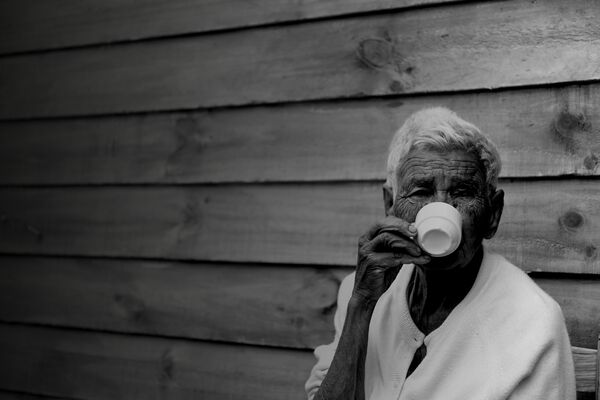History of the discovery of coffee

There are many versions about the origin of coffee as a drink.
The traveler Pietro de Balle was sure that traces of this amazing cup can still be seen in Homer's Odyssey and it was already known during the Trojan War. It was this drink that the beautiful Elena mixed with wine when she wanted to get rid of anxiety and pain (but how much should a person drink to get rid of pain, for whose sake so many people died - if we trust Homer, of course).
According to one legend, an Ethiopian shepherd, tending his sheep, noticed that after eating the dark-reddish fruit, his goats thrashed incessantly throughout the day and showed no signs of fatigue.
The shepherd picked the fruit (here this version is divided into two, according to one he brought the fruit to the monks in the existing monastery. According to the other, he brought it to the mullah. For me, the last one is more reliable because according to the origin of this legend, this story takes place in Ethiopia, while there the province of Kaffa is forming a fairly powerful state and there The existence of monks is largely doubtful.) He cooked and found that he too could not close his eyes and at the same time not feel any fatigue.
The news of the liquid brewed from the miraculous grains soon spread to the province. Soon they also discovered that after roasting it became much more aromatic. It awakened the mind, improved the mood, relieved fatigue. The taste was also wonderful, and because of so many positive qualities, it could be tasted by a bereaved person everywhere. Dakhlidari invited the bustling people in the city squares to the specially arranged coffee house by knocking on the coffee bean roasting pan. "Mahkhmas Al Qa Wa".
The drink became so popular that devout Muslims were allowed to drink it even during fasting. You would see him in seminars, gathering places.
But according to the story, the coffee truffle did not look very good. It got to the point that due to excessive desire for it, in 1611, the ruler of Mecca, Khair-Bey, cursed the "black liquid that confuses the mind" at a meeting called, because according to Sharia law, a drink that stirs up passions and confuses the mind should be prohibited. The enraged believers burned the entire supply of grain and made a terrible appearance for its consumers. But the love for him took its toll after some time. Moreover, his popularity was growing day by day and he already went beyond Mecca and Medina.
Europe learned about the drink called "Arab wine" in 1591, thanks to the Italian doctor Prosper Alpinus, who accompanied the Venetian ambassador on his trip to Egypt. The first cup of coffee was tasted in Rome in 1626, which was brewed by Della Belle, the Pope's representative in Iran. In which he turned out to be quite good at. This was a sign that the way to Europe was already open for coffee. By 1690, the first coffeehouse in Europe was already opened in Venice. Traders turned around and coffee beans spread all over the world.
The Dutch planted the seeds brought from Yemen on Sumatra, Sulawesi, Bali and Java. The Dutch and French were not far behind them either, coffee appeared in Puerto Rico, Colombia and Cuba. In 1772, the Portuguese brought coffee to Brazil.
It is true that the Arabs at first prevented the export of grain and seedlings to Europe in every possible way. They even introduced a punishment. But would anything stop the merchant who tasted profit!?
Beyond the trade routes, however, as coffee became an integral part of the Muslim world's culture, it followed them wherever they set foot. This is how it reached Turkey, where it was called Kahve, which comes from the Arabic name, and in Arabic it is called Kahva. I don't think there is a need for more hints about why we call this drink coffee in Georgia. I should proudly mention here that Europe was still asleep when we were tasting coffee (the Arab and Turkish Taresh has some positive moments).
